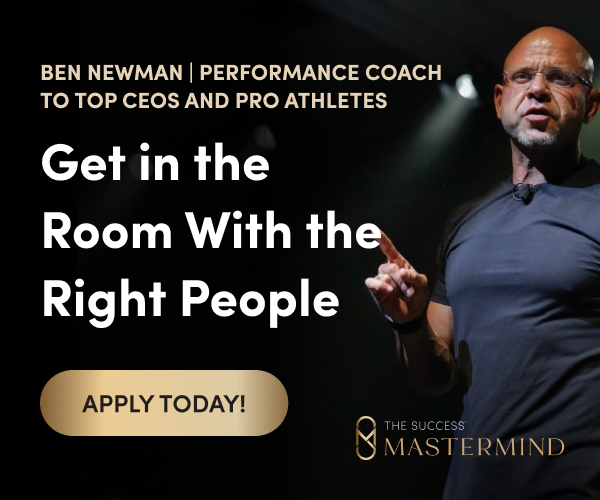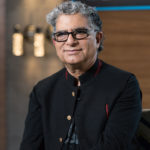"I’m not proud of it," says Liz Murray. Several years ago, she’d been invited to address an
audience in Utah. Other heavyweight speakers
were scheduled—Mikhail Gorbachev would
follow her—and the event was hosted by 7
Habits mastermind Stephen Covey. Before
she went on, Covey approached and asked
how she was doing. And all Murray could
think was, I think I stole this guy’s book.
Yes. Liz Murray, homeless child of drug-addict parents,
Harvard grad, winner of Oprah’s "Chutzpah Award," subject of
the Lifetime film Homeless to Harvard, and hero to millions, used
to shoplift self-help books.
That fact tells you a lot about her. When she wandered the
New York City streets with hope at low tide, Murray would
head to a bookstore’s self-help section and walk out with
Covey’s and Tony Robbins’ books. "I didn’t have any mentors,"
she says. "So I thought, Oh cool, these people can tell you how to
fix your life."
It worked. If Murray had lifted aerosol cans and CDs
instead—like most kids—her life might be different. When
you’re a homeless teen growing up in the Bronx, sleeping on
subways and eating from Dumpsters, you’re expected to drift
into the Jodie-Foster-in-Taxi-Driver role: heroin, street crime,
prostitution. But Murray, now 29, figured something out about
life back then: Discomfort can lead you out of any depths.
"I enjoy creature comforts," she says."Reading or sleeping
in a warm bed, going to a diner and ordering anything I want
off the menu. When I was on the street, drugs or crime didn’t
seem like options because they seemed so damn uncomfortable.
I saw how hard that life was going to be. I didn’t want to live
like that."
She had indeed seen. She was born in 1980 to hippie
parents who bought into the disco culture of the ’70s so
thoroughly that by the ’80s they had lost their apartment and
were spending their welfare checks on drugs. Both eventually
became infected with and died from HIV/AIDS.
So how did she go, as the title on the DVD case says, from
homeless to Harvard?
The first step came
in 1996 just after her
mother died. Liz was
15. "Facing the death
of someone so primary
to me woke me up,"
she says. "Even being
homeless, I’d never experienced in my entire life up until
that moment being so unattached to anything, to not have
anything to count on. That moment taught me that life was
malleable. If I could have a family and a home one night and all
of it’s gone the next, that must mean that life has the capacity
to change. And then I thought, Whoa! That means that just as
change happens to me, I can cause change in my life."
That led to her first real commitment: high
school. She fit four years of school into
two, all without a home, supportive
parents, or even a bedroom in which to
study. "High school was a marathon,"
she says."Academics have never
come easily to me. I had to study in
stillness, so I carved out spaces for
myself. My friend’s hallway in the
Bronx was really quiet, so I could
go up to the top-floor landing and
spread out my books because no
one would bother me."
Around this time, Murray also
realized how to cement her commitments
and prevent the grind from
wearing her down. "Before I had this transformation,
I always had this illusion I call
if-this-then-that. If I find a quiet place, then
I’ll study. If I get some more cash, then I’ll
go to school. We do that when there is no
real commitment to a goal. We’re saying,
"I’m committed…unless.' There’s a big
difference between that and an absolute
commitment. Absolute commitment means
you’ll work in a hallway."
After earning her diploma, she applied
for a college scholarship from The New York
Times, which led to acceptance and a full ride
to Harvard. At that point, the media caught
wind of her story."It started with the Times,
and then a segment on 20/20, then, 'Hey, we’d
like you to go on Oprah!' " Then Hollywood
immortality on Lifetime.
Still, none of it seemed strange to Murray.
"It felt like, Yeah, I have something I need to share with
people. A gift, a calling, something. It’s my belief that
your gift doesn’t belong to you. It’s something you’re
supposed to share. " She eventually left college to do
just that.
Today, Murray spreads her message of hope and
self-determination around the world through public
speaking and personal-development workshops. But
she remains on constant lookout for blind spots in her
own life. Discomfort remains high on her list.
"When I finally had my own apartment and I didn’t have
to worry about food or a place to sleep, motivation didn’t
come as easily to me, " she says. "I could goof off if I didn’t
watch myself… I have my dissatisfaction, and that might
be my greatest resource. It takes my standards higher. "
A crusade against comfort led Murray to understand
the mechanics of two other crucial concepts
of self-control: attachment and commitment.
"Attachment holds us in place in life. Look at
what’s going on in our economy right now.
People are losing their jobs and houses, and
there’s an underlying fear that when we lose the
things we believe make us who we are, we’re
not a human being anymore. But I know you
can lose a lot of things and still have yourself.
You’re breathing, standing and still have a
pulse. A certain courage comes with that.
When I lost attachment to everything, I said,
I have a blank slate. Life can be anything I want
it to be. "
A natural question to ask anyone who has
pulled off what Murray has is, How did you face down
fears and doubts? Or are you that confident? She laughs
at this and says, no way. "People have their demons,
and mine comes in the form of doubt. When I’m at
my worst, I get that little antagonistic voice in the
back of my head. I call it my wounded self. We
all have the voice. I used to think that I was my
mistakes. I can now identify that this is just my
wounded self talking to me. It’s never going to go
away. But now, if I’m unhappy with something
I’ve done, I know that my mistakes aren’t my
identity. "
When Murray appeared on The Oprah Winfrey
Show, Winfrey said to her, "Your future is so
bright it burns my eyes. " Now Murray is amping
up the wattage. She returned to Harvard and got
her degree in psychology in June 2009. She has a
two-book deal with Hyperion; her memoirs will
be published next year. She’s launched a personal development
Web site at HomelessToHarvard
and remains in constant demand as a
keynote speaker for the Washington Speakers
Bureau. She’s also contemplating a further educational
march to her master’s degree and Ph.D.
For now, however, she’s content to continue
learning "how to make a difference, how to transform
a life. " Then she smiles. "So I look back and
forgive myself for stealing the books because I think
there was something much bigger going on. I just
didn’t realize how it would fit into the bigger picture
at the time. "
And for the record, when her upcoming books hit
the shelves, if a homeless kid steals a copy, she’ll be
just fine with that.






